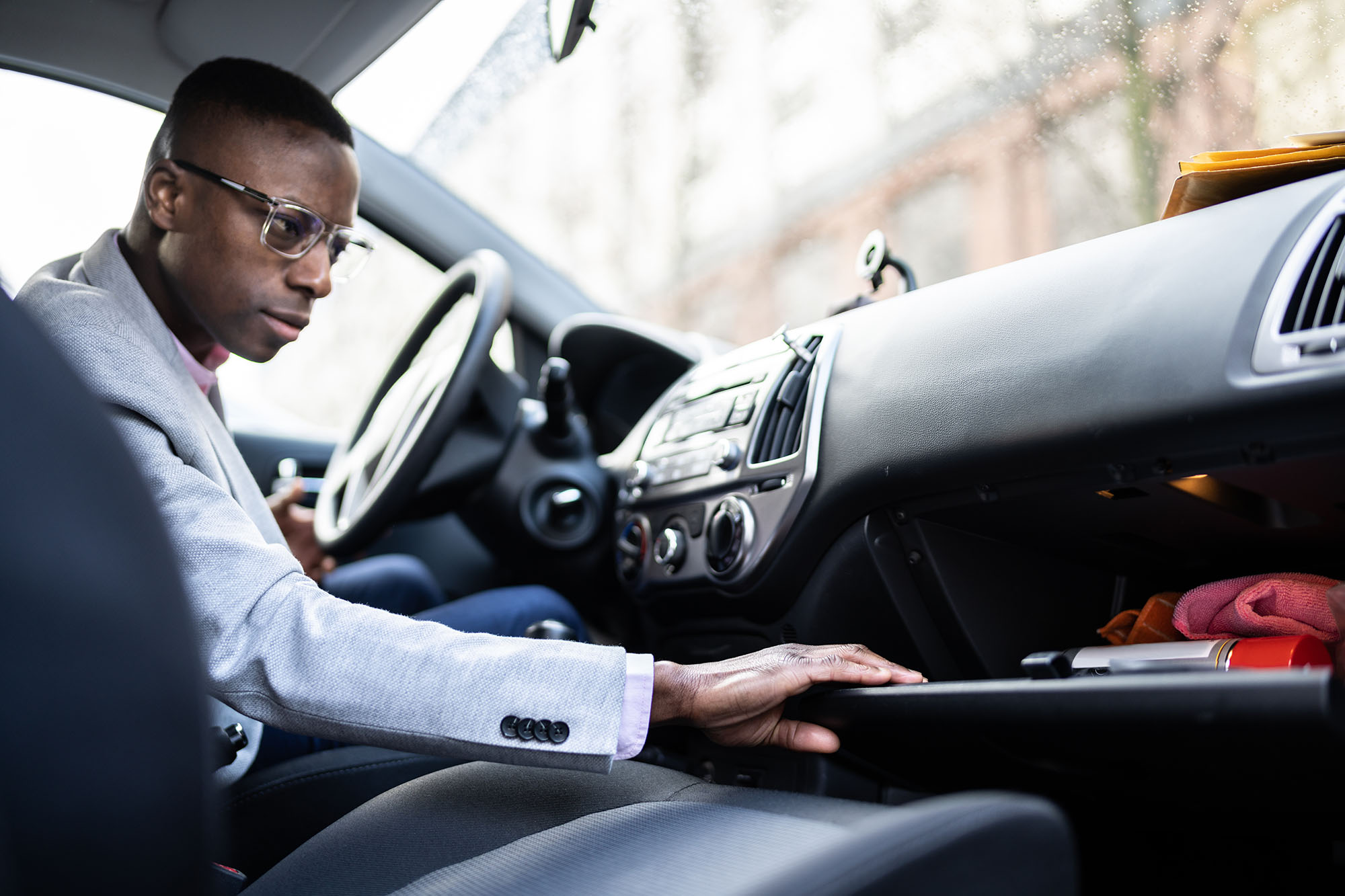Documents You Should and Shouldn't Keep in Your Car
How and why you should reduce the number of the papers in your glovebox.
 Shutterstock
Shutterstock
There was a time when drivers may have thought nothing of leaving various documents in the glove compartment. In this age of stolen identities and cybercrime, however, information as mundane as your phone number might be a starting point for car thieves or burglars to break into your financial accounts online.
Additionally, it's possible now to store key automotive documents such as insurance cards and emergency contact information digitally. Although there are still some things you should probably keep a hard copy of in your vehicle, there are many more that might be safer stored elsewhere.
Digital Versions of Some Documents Are Usually Fine During Traffic Stops
In times past, drivers were required to show a paper version of their car's registration and proof of insurance to law enforcement if pulled over.
These days, however, nearly every state and the District of Columbia allow drivers to display digital proof of insurance to authorities. Not only does that allow you to stop keeping track of a piece of paper, it also means anyone who breaks into your car won't be able to access the personal information on those insurance cards.
As for your registration, electronic versions are not quite as widely accepted, though some states, such as New Jersey, will allow it.
In some places, law enforcement officers can look up the vehicle's registration using license plate numbers to check against your ID to determine if you belong in or with the car. Generally speaking, though, it's wise to have a copy of your registration accessible.
Avoid Leaving These Documents in Your Car
Driver's License or State ID
You need to carry your driver's license or equivalent state-issued ID, but you should try to avoid leaving a copy in the car. The same goes for any legal or financial documents you need to have close by at all times.
Marriage Certificates and Custody Orders
Some parents of adopted children, for instance, are advised by lawyers to travel with marriage certificates and court custody orders to avoid any uncertainty about who can make critical health decisions in case of emergency. In that or any similar situation, keep the originals at home if possible and make copies to carry with you instead of leaving them in your car.
Bill of Sale and Vehicle Title
Some drivers put the title and even the bill of sale in their car, which can be a risky practice. The bill of sale, for example, has a lot of personal information, possibly including references to bank accounts and loan issuers.
The title to a vehicle typically has your signature on it, meaning a thief could potentially forge that signature, sell the vehicle for cash, and transfer the title without your knowledge. It's usually safest to leave such vehicle-related documents at home.
Consider Using Your Smartphone as a Virtual Glove Box
Having key documents accessible on your mobile phone or laptop may only be useful if you have them downloaded. The last thing you need when an impatient officer of the law is waiting outside your window is to struggle to access material because there's no cell or Wi-Fi signal.
Downloading documents for offline viewing — and knowing how to get to them quickly — is important. Take a screenshot of insurance and registration cards and make copies of your driver's license and any lists of emergency numbers or addresses. Mark these files in a way that makes them easy to find later.
Written by humans.
Edited by humans.
 Steve Friess
Steve FriessSteve Friess is a veteran freelance journalist and author based in Ann Arbor, Michigan. His career has included breaking the butterfly ballot story during the 2000 presidential election, spending months covering the SARS outbreak in China, and launching two of the earliest hit independent podcasts. He is a regular contributor to several national newspapers and magazines, and his byline has appeared on work reported in 15 countries and all 50 states. His first car was a new 1992 Saturn, but these days he and his husband haul their two toddlers around in a Mercedes GLC 300.
Related articles
View more related articles